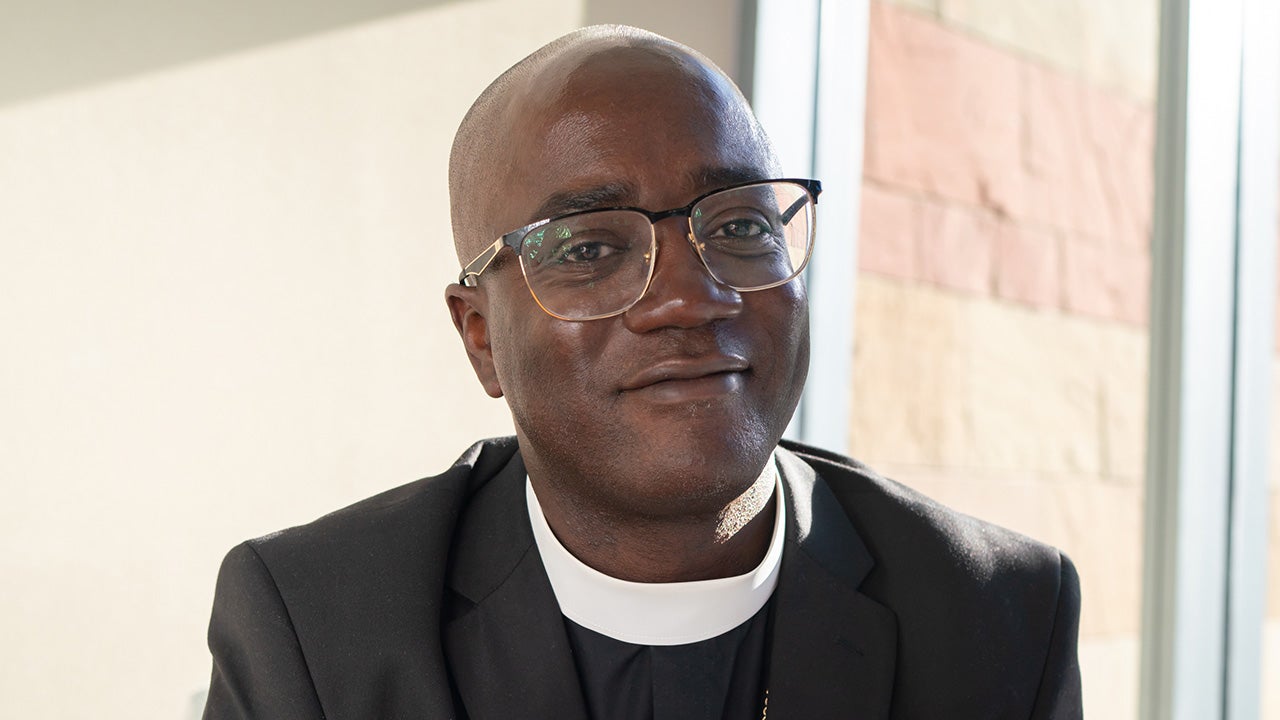Approximately $40,000 earmarked for Lionberger Preserve Wetland Restoration Project
Approximately $40,000 earmarked for Lionberger Preserve Wetland Restoration Project
Thanks to a generous donation by lifetime conservation enthusiast Donald Nelson, the Luther College Land Stewardship Program has new longevity and stability. Nelson, who established the Donald H. Nelson Endowment, most recently donated $500,000 to Luther, with $40,000 set aside to create the Lionberger Preserve Wetland Restoration Project.
To date, Nelson has donated $1.3 million to Luther’s Land Stewardship Program.
His lifetime donations have been used to fully implement Luther’s Land Stewardship Plan, which includes three overarching goals: to support the educational mission of the college; to nurture a connection with place by providing opportunities to explore, enjoy, care for and contemplate the natural world; and to fulfill Luther’s responsibility as land stewards by sustaining and restoring the ecological communities placed in Luther’s care.
“In my classes, advising meetings and regarding our work on Luther’s natural areas, I have lots of conversations with students about what it means to make a difference with a college degree and through service. I’ve used Don’s career, his stewardship of his land and his philanthropy as a fantastic example of how to make a lasting difference in varied ways,” said Molly McNicoll, Luther’s assistant professor of biology and natural areas land manager.
The largest portion of the new donation will be used to ensure the long-term investment in land stewardship at Luther and create permanent funding for land stewardship student internships. Student interns conduct land management and restoration ecology research on Luther’s natural areas.
“By making the internships permanent, it gives stability to the program and allows continued improvement of our natural areas and restoration projects and opportunities for students,” said McNicoll.
The gift also provides funding for smaller projects, such as purchasing native seed.
In addition, $40,000 of Nelson’s donation will fund wetland restoration along Ten-Mile Creek, a perennial waterway within the Lionberger Preserve. The Lionberger Environmental Preserve was donated to Luther in December 2004 by Paul, class of 1949, and Justine (Holum) Lionberger, class of 1950. Located five miles west of campus, the 180-acre reserve includes terrestrial and aquatic communities and upland woodlands in the bottomlands.
“A couple years ago, I heard about the donation of land that the Lionbergers had given to Luther. I thought, if possible, this would be a great place to continue to work with land conservation. I want to have the college continue to develop this land from an environmental point of view, and I think it has a lot of potential,” said Nelson.
The restoration will create a wetland meadow, with native grasses, sedges and wildflowers that would have been common along the floodplain.
A native of Minneapolis, Minnesota, Nelson had a 25-year career as an orthodontist at the Mayo Clinic before moving to Northfield. His stewardship began in 1970 when he purchased farm land in the Rochester area to plant trees. Although he has no direct connection to Luther, he is drawn to Luther’s sustainability efforts.
“I was never on a farm before and didn’t grow up on a farm, but I have a definite interest in conservation. Working with farm properties, from a conservation point of view, I have found very interesting and rewarding. Some years ago now when I visited Luther, I was impressed with the campus and thought that working with land stewardship would be very appropriate and helpful in the Luther College area,” said Nelson.
Luther began restoring nearly 700 acres of natural areas in 1969, including many remnant and restored habitats. Since 2011, Luther has planted 13 acres of bottomland forest, 25 acres of prairie along the Upper Iowa River and almost three acres of prairie designed to research pollinator habitats.
“The original endowment, along with several other funding sources, essentially made it possible to build land stewardship into a permanent program. Luther’s natural areas have always been important to the sense of place we have as a college, as well as being an important place where the educational mission of the college is accomplished,” said McNicoll.
Related Posts

Curry will highlight the theme of “Courage for the Common Good” in the shared legacy of Martin Luther King Jr. and Martin Luther, both of whom confronted injustice and uplifted people.
Merry Christmas from all of us at Luther, and may the “winds of hope” surround you!
Contact Information
Michelle Volkmann
Media Relations Specialist
Phone: 563-387-1417